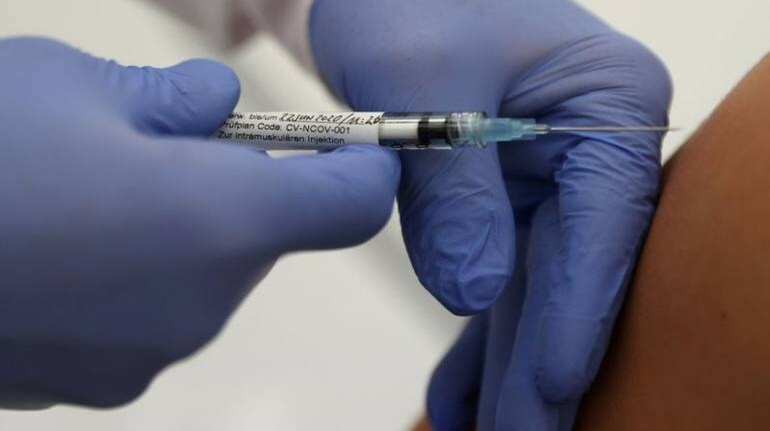



The Health Ministry said on November 10 that its National Expert Group on Vaccine Administration for COVID-19 was in talks with “all candidate vaccine manufacturers” for supply to India.
Addressing his daily press conference, Union Health Secretary Rajesh Bhushan confirmed that India was considering a tie-up with Pfizer.
"The Group is in talks with all vaccine manufacturers, including domestic and foreign ones. When we continue this dialogue, we not only look at the status of the development of their vaccines, we also look at the regulatory approvals as to where they have progressed and we also engage in a dialogue about the logistical requirements,” Bhushan said.
Bhushan was questioned on the same after Pfizer and BioNTech on November 9 announced their candidate vaccine showed 90 percent effectiveness against COVID-19. The pharma giant has supply deals in place with the United States, the United Kingdom, Japan and the European Union.
"This is a continuously changing, dynamic situation and if and when the regulatory approval comes, we will share it with you," he added.
Also Read | Five things to know about Pfizer's COVID-19 vaccine that's 90% effective, including India availability
Pfizer meanwhile said it was aiming to produce up to 50 million vaccine doses in 2020 and 1.3 billion in 2021.
“If our vaccine candidate is successful, we would allocate the available 2020 doses proportionally across the countries where we have fully executed supply agreements that include delivery of a portion of doses in 2020,” the company told NDTV.
Pfizer added that it was “committed to ensure the availability” and will work with governments to “support distribution to their defined priority groups.”
Specifically on India, the company said it was “committed to engaging with the government” and will “explore opportunities to make this vaccine available for use in the country."
Follow our LIVE Updates on the coronavirus pandemic here
Apart from being able to secure enough vaccine stock from manufacturers, India’s poor cold chain infrastructure has been called to focus as most vaccines demand strict storage conditions.
Most of the COVID-19 vaccines in development require to be stored at such temperatures ranging 2-8 degree C to -50 and -90 degree C. There are concerns that storage and transportation issues could disallow proper country-wide vaccination programmes, even if India is able to secure sufficient doses.
Answering this Bhushan stated that “dialogue on logistical requirements is ongoing.”
“We are in a position to not only augment and strengthen, but also add to our cold chain capabilities. Any large scale immunisation (programme) would require substantial increase in the number of cold chain points and cold chain equipment,” he added.
Bhushan also reiterated that the vaccination drive, once in place, would be implemented for all. “Whenever regulatory approvals are provided, we have a plan to ensure that vaccines would be available to all priority population groups, irrespective of the region where they reside,” he noted.
Discover the latest Business News, Sensex, and Nifty updates. Obtain Personal Finance insights, tax queries, and expert opinions on Moneycontrol or download the Moneycontrol App to stay updated!
Find the best of Al News in one place, specially curated for you every weekend.
Stay on top of the latest tech trends and biggest startup news.